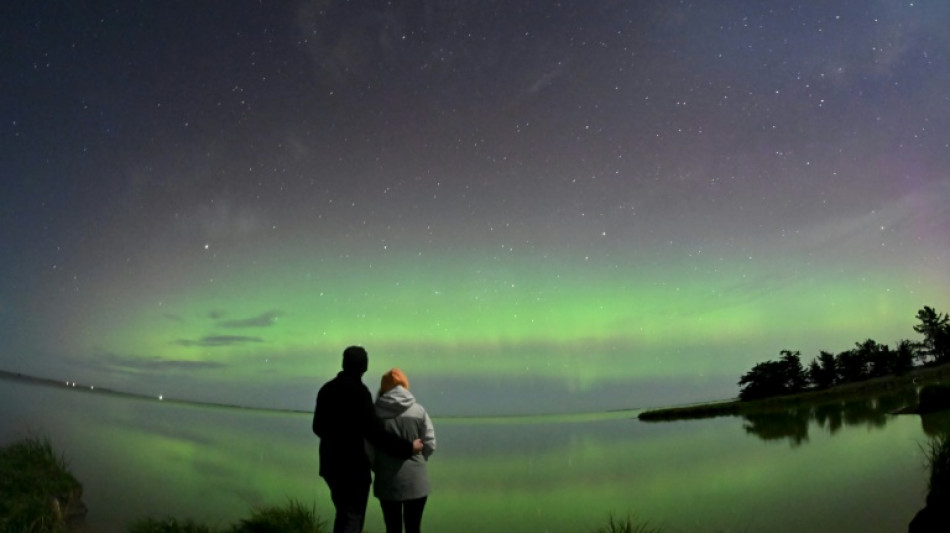
-
 Trump announces tariffs on Iran trade partners as protest toll rises
Trump announces tariffs on Iran trade partners as protest toll rises
-
Sabalenka favourite at Australian Open but faces Swiatek, US threats

-
 Gay Australian footballer Cavallo alleges former club was homophobic
Gay Australian footballer Cavallo alleges former club was homophobic
-
Trump has options on Iran, but first must define goal

-
 Paris FC's Ikone stuns PSG to knock out former club from French Cup
Paris FC's Ikone stuns PSG to knock out former club from French Cup
-
Australia's ambassador to US leaving post, marked by Trump rift

-
 Slot angered by 'weird' Szoboszlai error in Liverpool FA Cup win
Slot angered by 'weird' Szoboszlai error in Liverpool FA Cup win
-
Szoboszlai plays hero and villain in Liverpool's FA Cup win

-
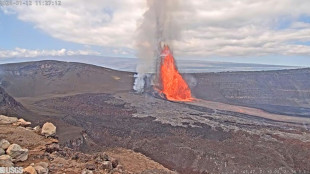 Hawaii's Kilauea volcano puts on spectacular lava display
Hawaii's Kilauea volcano puts on spectacular lava display
-
US stocks at records despite early losses on Fed independence angst
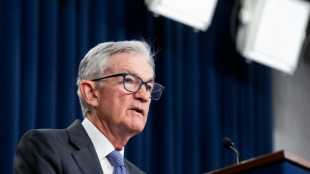
-
 Koepka rejoins PGA Tour under new rules for LIV players
Koepka rejoins PGA Tour under new rules for LIV players
-
Ex-France, Liverpool defender Sakho announces retirement

-
 Jerome Powell: The careful Fed chair standing firm against Trump
Jerome Powell: The careful Fed chair standing firm against Trump
-
France scrum-half Le Garrec likely to miss start of Six Nations

-
 AI helps fuel new era of medical self-testing
AI helps fuel new era of medical self-testing
-
Leaders of Japan and South Korea meet as China flexes muscles

-
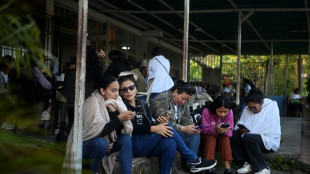 Trump sets meeting with Venezuelan opposition leader, Caracas under pressure
Trump sets meeting with Venezuelan opposition leader, Caracas under pressure
-
Australia captain Alyssa Healy to retire from cricket

-
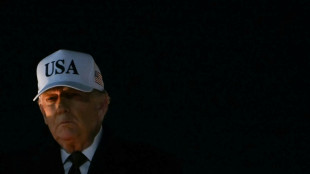 US 'screwed' if Supreme Court rules against tariffs: Trump
US 'screwed' if Supreme Court rules against tariffs: Trump
-
NATO, Greenland vow to boost Arctic security after Trump threats

-
 Israel to take part in first Eurovision semi-final on May 12
Israel to take part in first Eurovision semi-final on May 12
-
How Alonso's dream Real Madrid return crumbled so quickly

-
 Ex-Fed chiefs, lawmakers slam US probe into Jerome Powell
Ex-Fed chiefs, lawmakers slam US probe into Jerome Powell
-
Former Panama leader on trial over mega Latin America corruption scandal

-
 Trump keeping Iran air strikes on the table: White House
Trump keeping Iran air strikes on the table: White House
-
Paramount sues in hostile bid to buy Warner Bros Discover

-
 Ugandan opposition leader Bobi Wine warns of protests if polls rigged
Ugandan opposition leader Bobi Wine warns of protests if polls rigged
-
Airbus delivers more planes in 2025

-
 Alonso leaves Real Madrid, Arbeloa appointed as coach
Alonso leaves Real Madrid, Arbeloa appointed as coach
-
UK pays 'substantial' compensation to Guantanamo inmate: lawyer
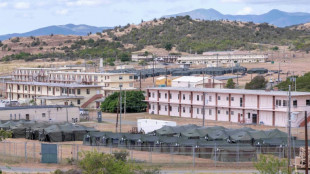
-
 Iran protest toll mounts as government stages mass rallies
Iran protest toll mounts as government stages mass rallies
-
Gold hits record high, dollar slides as US targets Fed
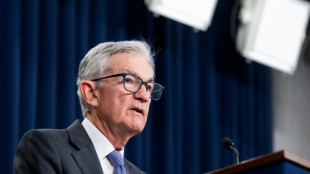
-
 Cuba denies being in talks with Trump on potential deal
Cuba denies being in talks with Trump on potential deal
-
Scientists reveal what drives homosexual behaviour in primates

-
 Venezuela releases more political prisoners as pressure builds
Venezuela releases more political prisoners as pressure builds
-
15,000 NY nurses stage largest-ever strike over conditions

-
 Rosenior plots long Chelsea stay as Arsenal loom
Rosenior plots long Chelsea stay as Arsenal loom
-
Zuckerberg names banker, ex-Trump advisor as Meta president

-
 Reza Pahlavi: Iran's ex-crown prince dreaming of homecoming
Reza Pahlavi: Iran's ex-crown prince dreaming of homecoming
-
Venezuela releases more political prisoners
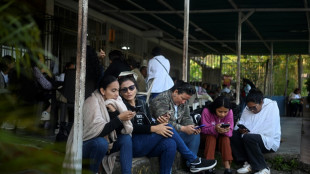
-
 Kenya's NY marathon champ Albert Korir gets drug suspension
Kenya's NY marathon champ Albert Korir gets drug suspension
-
US prosecutors open probe of Fed chief, escalating Trump-Powell clash

-
 Russian captain in fiery North Sea crash faces UK trial
Russian captain in fiery North Sea crash faces UK trial
-
Carrick is frontrunner for interim Man Utd job: reports

-
 Iran government stages mass rallies as alarm grows over protest toll
Iran government stages mass rallies as alarm grows over protest toll
-
Variawa leads South African charge over Dakar dunes
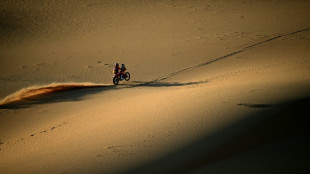
-
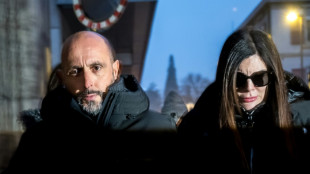 Swiss inferno bar owner detained for three months
Swiss inferno bar owner detained for three months
-
Heathrow airport sees record high annual passenger numbers
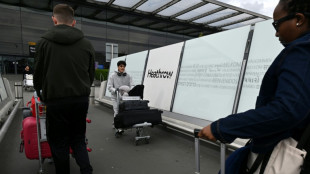
-
 Georgia jails ex-PM for five years amid ruling party oustings
Georgia jails ex-PM for five years amid ruling party oustings
-
Kyiv buries medic killed in Russian drone strike
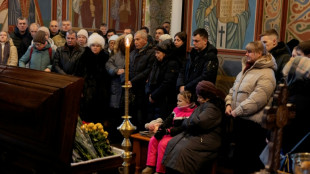

'Party atmosphere': Skygazers treated to another aurora show
Scientist Jim Wild has travelled to the Arctic Circle numerous times to study the northern lights, but on Thursday night he only needed to look out of his bedroom window in the English city of Lancaster.
For at least the second time this year, skygazers in many parts of the world were treated to colourful auroras at latitudes beyond the polar extremes where they normally light up the skies.
The dazzling celestial shows were caused by a gigantic ball of plasma -- and an accompanying magnetic field -- which erupted from the Sun earlier this week.
When this eruption, called a coronal mass ejection (CME), arrived at Earth at around 1600 GMT on Thursday, it triggered a strong geomagnetic storm.
This storm in turn sparked northern and southern lights -- aurora borealis and aurora australis -- in swathes of Europe, the United States, Australia and elsewhere.
While Wild could see the shimmering reds and greens from his back garden, he jumped in the car with his family to get a better look away from the bright lights of Lancaster.
"All the little back roads and parking spots were full of people with flasks of coffee and deck chairs looking at the northern lights," he told AFP.
"It was a party atmosphere," he said, comparing the scenes to UFO spotters looking up at the sky in the movie "Close Encounters of the Third Kind".
While Wild was explaining the phenomenon to his 11- and 13-year-old children, another nearby skygazer approached and asked how come he knew so much about it.
"Well, actually, this is what I study for a living," responded the professor in space physics at Lancaster University, who specialises in how solar weather disrupts power grids and transport here on Earth.
- 'Perfect hit' -
Auroras were also visible across northern Europe, including near London and Berlin, and as far south in the US as the state of Virginia. In the Southern Hemisphere, areas of Australia and New Zealand were also treated to a show, AFP photos showed.
The CME that triggered Thursday's auroras erupted from a spot on the Sun pointed directly at Earth, said Juha-Pekka Luntama, the head of the European Space Agency's Space Weather Office.
"It was a perfect hit," he told AFP.
The CME caused a "severe" geomagnetic storm given a rating of G4. This fell narrowly short of the highest level of G5, which was seen in May, when auroras delighted many skygazers across swathes of the world.
Storms on the Sun have been intensifying as solar activity approaches -- or may have already reached -- the peak of its 11-year cycle.
While such storms offer pretty light shows for skygazers, they can pose a serious threat to satellites, GPS services, power grids and even astronauts in space.
The US Space Weather Prediction Center warned on Thursday that the geomagnetic storm could disrupt emergencies services already stretched thin by deadly hurricanes Helene and Milton.
Luntama said the European Space Agency had not received any information about disruptions caused by the latest storm, but sometimes this can take days.
The storm is "gradually dissipating", he added, which means that any auroras on Friday night or over the weekend will likely be farther north in Europe, such as central Sweden.
- 'Delighted' -
But for those still hoping to see an aurora, there could be some more chances in the next couple of years.
Luntama explained that during past solar cycles, the biggest eruptions have come in the two years after the Sun passed its peak.
Wild also did not expect a repeat of Thursday's "magical" display.
But space weather -- like Earth's weather -- is not an "exact art," he emphasised.
And if there is an aurora lighting up the sky nearby, it is worth seeking out.
Wild said his neighbours had travelled to Norway twice to see the northern lights -- but had been foiled by clouds both times.
Then on Thursday night, they saw an aurora from their garden.
"They were really delighted to finally have seen it," Wild said.
U.AlSharif--SF-PST



